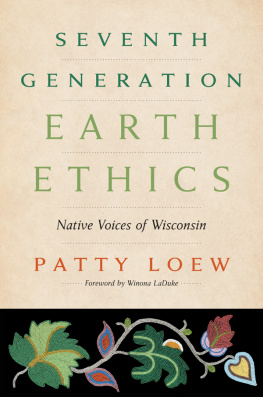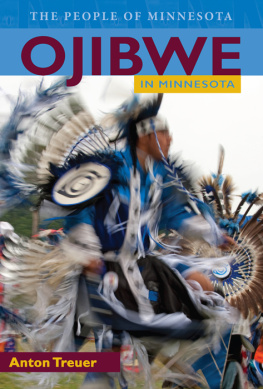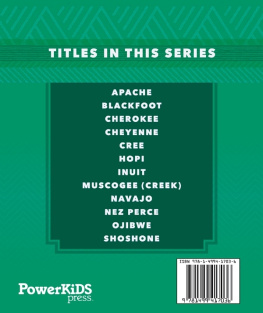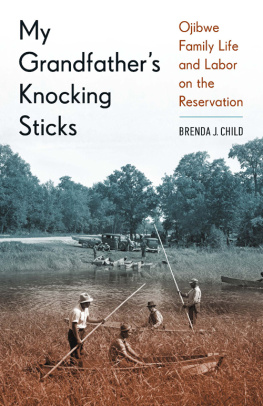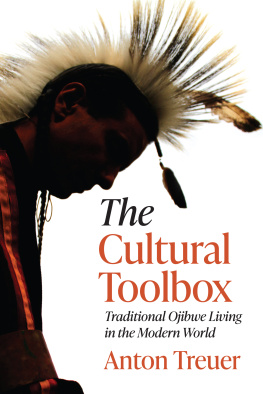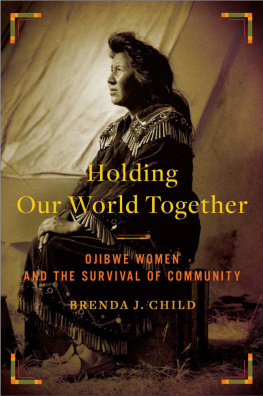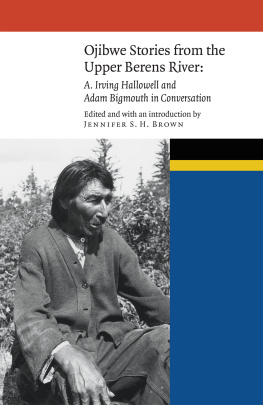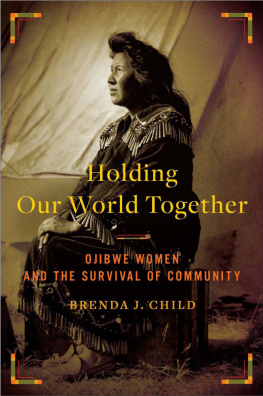SEVENTH GENERATION
EARTH ETHICS
SEVENTH

GENERATION

EARTH

ETHICS

Native Voices of Wisconsin

PATTY LOEW

Wisconsin Historical Society Press
Published by the Wisconsin Historical Society Press
Publishers since 1855
2014 the State Historical Society of Wisconsin
E-book edition 2014
Publication of this book was made possible in part by a grant from the Amy Louise Hunter fellowship fund.
For permission to reuse material from Seventh Generation Earth Ethics (ISBN 978-0-87020-674-0, e-book ISBN 978-0-87020-675-7), please access www.copyright.com or contact the Copyright Clearance Center, Inc. (CCC), 222 Rosewood Drive, Danvers, MA 01923, 978-750-8400. CCC is a not-for-profit organization that provides licenses and registration for a variety of users.
wisconsin history .org
Photographs identified with WHi or WHS are from the Societys collections; address requests to reproduce these photos to the Visual Materials Archivist at the Wisconsin Historical Society, 816 State Street, Madison, WI 53706.
Cover and page iii image: Beadwork from an Ojibwe bandolier bag, ca.1870, WHS Museum #1954.1893
Cover design by Percolator Graphic Design
Interior design and typesetting by Integrated Composition Systems, Spokane, Washington
18 17 16 15 14 1 2 3 4 5
Library of Congress Cataloging-in-Publication Data
Loew, Patty.
Seventh generation earth ethics : native voices of Wisconsin / Patty Loew.
pages cm
ISBN 978-0-87020-674-0 (hardback) ISBN 978-0-87020-675-7 (e-book) 1. Indians of North AmericaWisconsinBiography. 2. Ojibwa IndiansWisconsinBiography. 3. EnvironmentalistsWisconsinBiography. 4. Environmental protectionMoral and ethical aspects. 5. SustainabilityWisconsin. 6. NatureEffect of human beings onWisconsin. 7. WisconsinEnvironmental conditions. I. Title.
E78.W8L654 2014
2014004493
977.5004'97dc23
For my husband
David
and our children
Passweweshin (Brooks)
and
Myawatthwen (Dominic)
Contents
Foreword
The land calls us. It calls us home. And it makes us the people our ancestors wish us to be.
We are thunderbeings, wolves, eagles of war, feathered heroes, spirits who stand in the middle; those who fly upward, star beings, and those who shift the wind. That is who we are, our names, our clans of bear, caribou, sturgeon, and wolf. All of this ties us to this place and we know only that. We know because it comes from a land, a place whose stories we keep and tell. We watch the others from our land. They come toward us, mining picks in hand, buckets to take our water, saws for our trees. They come singularly, tentatively, in ships, and then they come more and more. They come, they take, and then they retreat. And then they return.
We remain. Like those whose stories are told in Seventh Generation Earth Ethics, we are the ones who have remained.
This we know. And this is what we live. The stories and people of this book by my friend, Patty Loew, are the people of this land. I have been blessed to know many of them. How is it, in this world of jackhammer noise that surrounds us with constant din, with the loss of beings and memories, with the ecological, spiritual, and cultural amnesia which can be so contagious, that we remain Anishinaabeg, Potawatomi, Ho-Chunk?
We live, as these beings. Because we are from one of the most powerful places in the worldwhere earth, sky, and water are a constant, underlain with spirit beings and copper, food which grows on the water, and a language which places us here and nowhere else. We live because our ancient beings, the gete Anishinaabeg or our ancestral beings, shine in lights in the forest or torches on the lake. This is the plane of Anishinaabeg, and we are those who are indigenous in the present. This is the plane of the stories of heroic beings in this book, stories well-told.
Winona LaDuke
Anishinaabeg, White Earth Reservation
Preface
This collection of Native American biographies is born of an idea that has been percolating for decades, the result of thirty years of working as a journalist and historian in Wisconsins Native American communities. Since my work primarily involves oral history, I have met countless individuals whose life stories are compelling and integral to the development of their nations. Not surprisingly their stories help us understand the indigenous communities that shaped them.
I originally conceived Seventh Generation Earth Ethics as a collection of biographies about prominent Native American environmental figures, but after I began interviewing biography subjects, I realized fairly quickly that the environmentalist label was too limiting and not really accurate. Yes, the tribal people represented in this book may be antimining activists and treaty rights advocates or conservationists and land stewards, but almost all of them have distinguished themselves in other areas as well: law, education, language preservation, community organizing, the arts. They have self-identified holistically and their lifes work reflects the traditional ecological values and cultural sensibilities of their people. It became clear to me that sustainability was a better way to frame a book about who they were as Native people and how their accomplishments helped nurture their nations.
Each indigenous community in Wisconsin has such individualsmany more than are included in this collection. The biographies chosen for this book are people I know personally or historical figures I encountered in my work as a journalist or for research on Indian Nations of Wisconsin: Histories of Endurance and Renewal, my earlier work that contains the compact histories of the twelve Native tribes in this state. I include one biography from each of the twelve communitiesmen and women who made a difference and helped sustain their tribes through difficult periods of Indian history. I begin each chapter with an anecdote that speaks to my personal connection with the individual.
Some of the chapter subjects are what most readers would consider environmentalists. The late Walt Bresette of the Red Cliff Band of Lake Superior Ojibwe, for example, was a longtime environmental activist, journalist, lecturer, and cofounder of the Wisconsin Greens. He was the consummate community organizer, creating nearly a dozen grassroots organizations in the Upper Great Lakes region. Bresette was the principal architect of the Seventh Generation Amendment, a concept that states that the right of citizens of the United States to use and enjoy air, water, wildlife, and other renewable resources determined by the Congress to be common property shall not be impaired, nor shall such use impair their availability for the use of future generations.
Frances Van Zile (Mole Lake Ojibwe) spent twenty years successfully battling a proposed open-pit copper mine near Crandon, Wisconsin. She led a womens movement, known as Keepers of the Water, that attempted to educate all Wisconsin residents about the destructive nature of acid mine drainage and the potential threat to Mole Lakes
Next page
